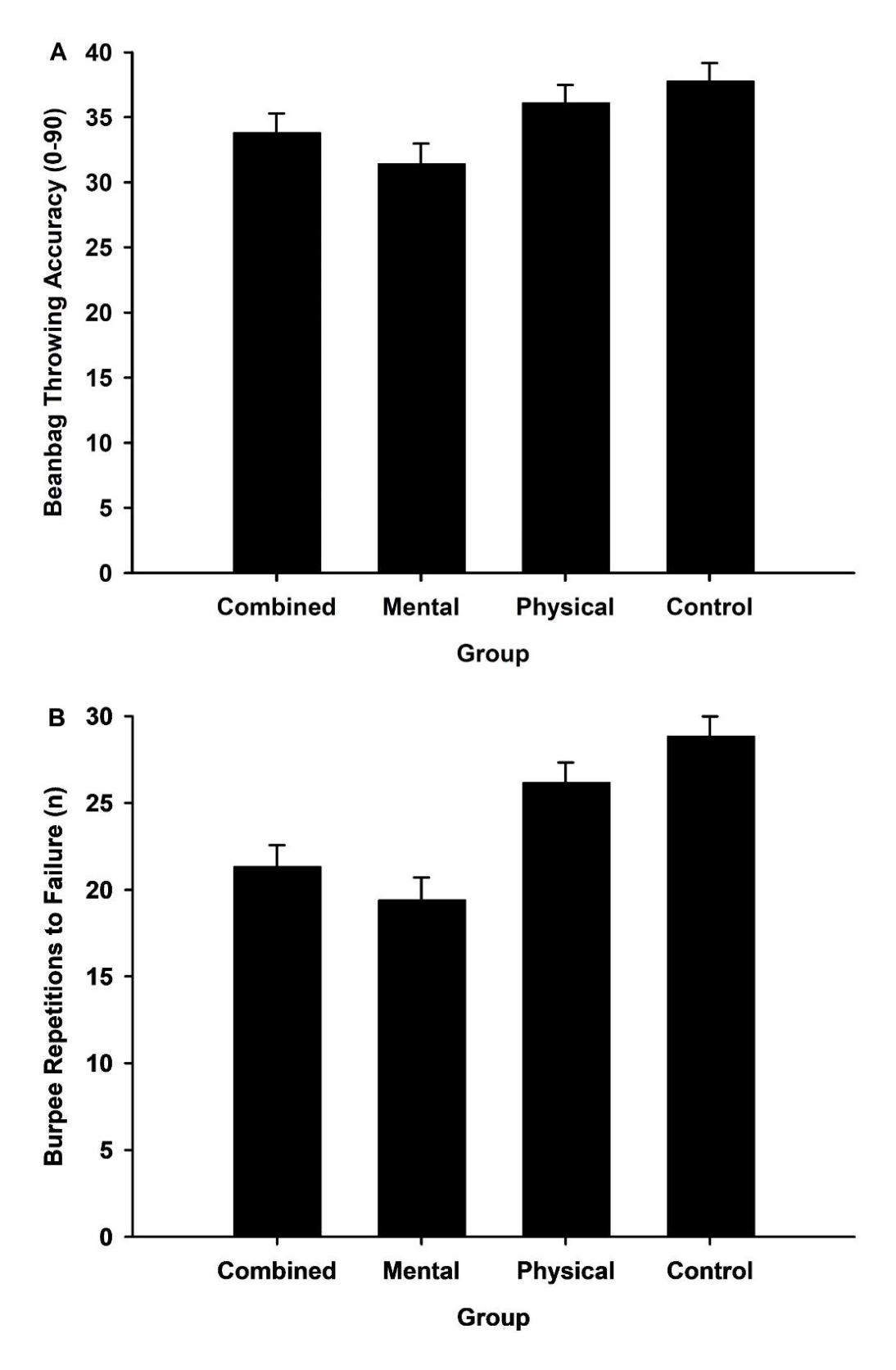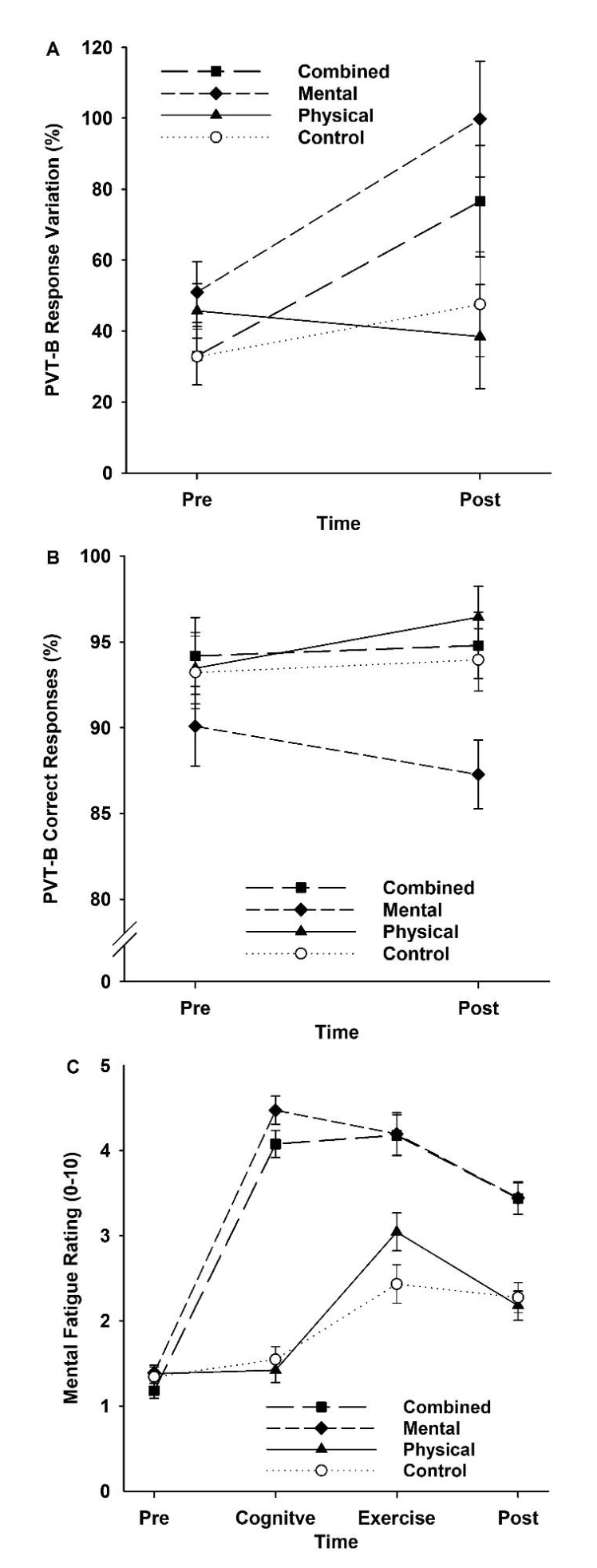Impact of Combined Mental & Physical Fatigue on Performance
In sports, fatigue isn't just about physical exhaustion. Mental fatigue (MF), stemming from cognitive demands, can significantly impair both cognitive and physical performance.

In sports, fatigue isn’t just about physical exhaustion. Mental fatigue (MF)—caused by prolonged cognitive demands—can significantly impair both cognitive function and physical performance. A recent study examined how different types of fatigue—mental, physical, and combined—affect motor skills and endurance exercise performance. The findings are essential for athletes, coaches, and clinicians looking to optimize performance.
Key Study Insights
Researchers aimed to determine whether combined mental and physical fatigue would have a greater impact on performance than isolated fatigue. The study involved 164 undergraduate sport and exercise science students, all of whom were randomly assigned to one of four groups:
- Mental Fatigue Group – Completed a 15-minute TLDB cognitive task.
- Physical Fatigue Group – Completed a 90-second burpee task.
- Combined Fatigue Group – Completed both tasks.
- Control Group – No fatigue intervention.
Methodology
The study involved 164 undergraduate sport and exercise science students (75 males, 89 females) from a British university. They were all advised to sleep well, avoid caffeine, and refrain from training 24 hours prior to testing.
Fatigue Induction
- Mental Fatigue: Induced by a 15-minute time-load dual-back (TLDB) cognitive task.
- Physical Fatigue: Induced by a 90-second burpee exercise task.
- Combined Fatigue: Participants completed both the TLDB and burpee tasks.
- Control: Participants did not undergo any fatigue induction.
Measurement of Performance
Participants' cognitive performance was measured using the Psychomotor Vigilance Task (PVT) before and after each condition. Physical performance was assessed using the throwing accuracy task and a burpee-to-failure endurance test. Additional physiological and subjective parameters were also measured, including heart rate (HR), heart rate variability (HRV), blood lactate levels, perceived exertion, and mood.
Key Findings
Throwing Skill Task:
- Mental Fatigue Group: 14.3% decrease in accuracy compared to control.
- Combined Fatigue Group: 10.1% decrease in accuracy compared to control.
- Physical Fatigue Group: No significant accuracy loss.
Burpee Task:
- Mental Fatigue Group: 11.8% fewer burpees compared to control.
- Combined Fatigue Group: 12.5% fewer burpees compared to control.
- Physical Fatigue Group: No significant reduction.
Differences in Mental Fatigue and Physiological Responses
PVT Results:
- Mental Fatigue Group: 15.6% decline in response accuracy and increased variability.
- Combined Fatigue Group: Impaired cognitive performance, but less severe than the mental fatigue group.
Subjective Measures:
- Mental Fatigue Ratings: Mental Fatigue Group reported a 21.7% increase, and Combined Group reported a 19.2% increase compared to control.
- Perceived Exertion (RPE):
- Physical Fatigue Group and Combined Group showed higher RPE post-burpee task.
- Mental Fatigue Group showed similar RPE increases post-final burpee test.


Interpretation of Results
The study confirmed that a 15-minute TLDB task effectively induced mental fatigue, impairing both skill and endurance performance. Interestingly, combined fatigue did not further amplify the negative effects of mental fatigue, suggesting that short, high-intensity physical tasks might counteract the detrimental impact of mental exhaustion.
These findings reinforce the importance of considering both the duration and intensity of cognitive tasks in fatigue studies. Shorter, more demanding cognitive tasks may be more effective in inducing mental fatigue than longer, less engaging tasks.Implications for Training and Clinical Practice
Conclusion
The study demonstrated that mental fatigue, induced by a short, demanding cognitive task, significantly impairs motor skill and endurance performance. Combined fatigue did not further impair performance, suggesting that short physical tasks might help mitigate the effects of mental fatigue. These findings underscore the need for further research into the complex interactions between mental and physical fatigue and their impact on athletic performance.
TL;DR
Mental fatigue, induced by cognitive tasks, significantly impairs both cognitive and physical performance. This study found that:
- Mental fatigue led to a 14.3% decrease in accuracy and 11.8% fewer burpees.
- Combined mental and physical fatigue resulted in a 10.1% decrease in accuracy and 12.5% fewer burpees.
- Short, intense cognitive tasks are more effective at inducing fatigue than longer ones. The findings highlight the need for incorporating mental fatigue considerations in athletic training and clinical assessments.
